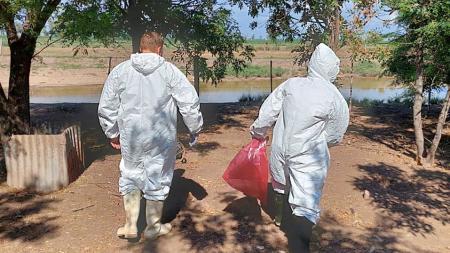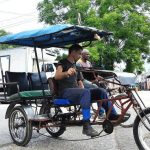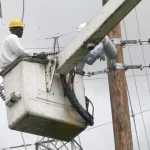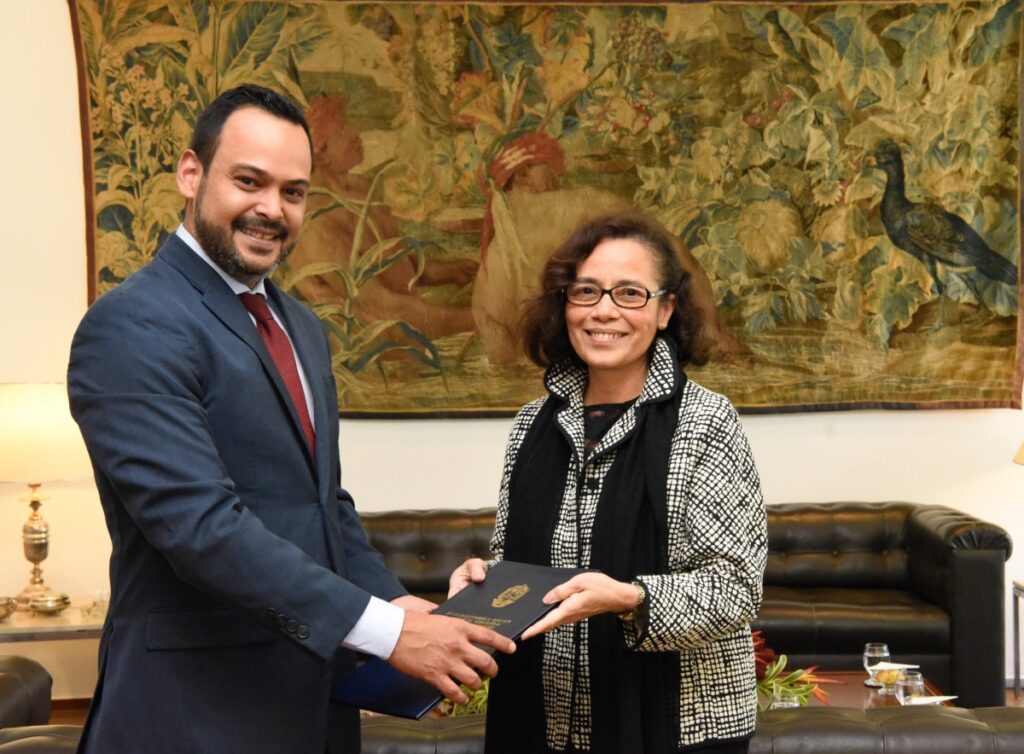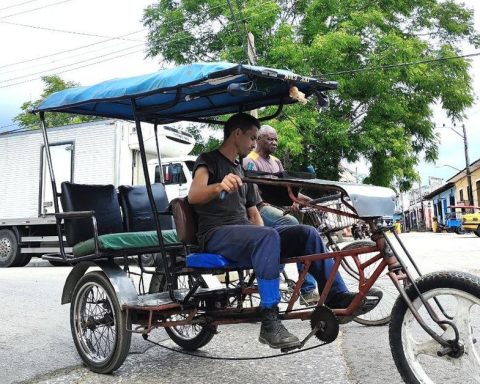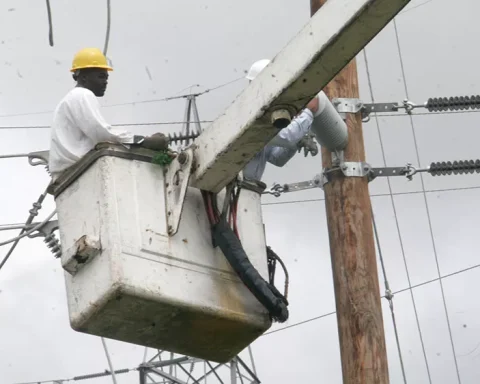Confirmed cases of avian influenza throughout Argentina add up to 14, reported the National Service for Agrifood Health and Quality (Senasa), while new preventive measures are announced to prevent the spread of the disease.
With more than 100 notifications attended by Senasa, There are 14 confirmed cases until yesterday in wild and backyard birds (eight in Córdoba, two in Santa Fe, one in Buenos Aires, one in Jujuy, one in Neuquén and one in Salta).specified the agency.
In Córdoba, the virus was detected in eight departments (General San Martín, Alejo Ledesma, Villa del Rosario, Deheza and Baldisera; Santa Rosa del Río Primero and Villa Tulumba), while in Salta the positive case was registered in the town of Cerrillos.
The disease also affected Santa Fe (Villa Cañas, San Jerónimo), Jujuy (Laguna de Pozuelo), Neuquén (Zapata) and the Puán district of Buenos Aires.
Avian influenza is a highly contagious disease of animals caused by a virus that usually infects only birds (domestic and wild), and less frequently pigs and other mammals, causing mortality, so far with no cure.
In addition, No human transmission of the virus has been reported, although the agency warns that direct contact with infected birds or surfaces and objects contaminated by their feces could pose a risk.
The first case, in Jujuy
In mid-February the first case of avian influence in the country was confirmed -in the province of Jujuyin an Andean goose-, which led Senasa to order preventive measures against its spread and declare a health emergency.
Faced with this first case, the Pozuelo Lagoon was raked and agents from the Senasa North NOA Regional Center carried out a survey and inspection of the state of the birds in the Popayán Lagoon, in the town of El Ceibal, without detecting health news in the wild population. .

In Cordova A working group was formed with representatives of the Córdoba Regional Center, National Parks, the Province’s Environmental Police, the Rural Patrol of Balnearia, the Department of High Risk Units (DUAR) and the Center for Agrarian Studies (CEA) of Santiago del Estero to rake the Mar Chiquita Lagoon.
“We are very committed to sanitary, surveillance and prevention actions, articulating with the public and private sectors in pursuit of the preservation of the sanitary status and the protection of the commercial sector,” said the director of the Córdoba del Senasa Regional Center, Gustavo Zabaletta, who pondered the work being developed.
In jump It was agreed with national and regional Senasa authorities to meet daily, exposing the results of the implemented actions.
In Santa Fe a group of Senasa agents carry out health care in the area of the focus of the disease and three other groups carry out rakes in seven backyard properties located within a radius of 5 km.
Agents of the Senasa North NOA Regional Center continue the sanitary and surveillance in the areas where the findings were made, strengthening controls on the movement and transfer of birds and poultry products with the collaboration of the National Gendarmerie.
The main controls include: border posts between the province of Entre Ríos and Uruguay, due to the occurrence of a case in that country; and at the border crossings with Brazil, Bolivia (where cases were also registered) and Paraguay, in the provinces of Chaco, Formosa, Corrientes, Misiones, Jujuy and Salta.
In currents and Missions Senasa agreed with representatives of both provinces to strengthen joint prevention and surveillance work in separate task coordination meetings, given that no positive cases have been registered in both states.
In Neuquen agency agents rake the Laguna Blanca, together with personnel from National Parks, Fauna and Health; highlighting the importance of immediate notification to Senasa in the event of any suspicion of the presence of the disease.

Sacrifices in Puán
Regarding the situation in Buenos Aires, in the district of Puán -where a case of bird flu was confirmed- 50 ducks, geese and chickens were slaughtered this week.
Under this risk, the mayor of the department confirmed that the premises of the Fishing Club -where the virus was detected- will remain closed for 28 days to avoid any type of contagion, confirming that “they did not find” any other positive case.
In addition to these measures, Senasa has been implementing training for wildlife rangers since 2022, to learn the detection protocols for wild birds with influenza symptoms. Currently, migrating species are regularly monitored.
In this sense, Senasa highlights the importance of the epidemiological surveillance program, which implies the constant collection of samples from birds, tending to demonstrate the absence of the disease or to detect it early.
This program is carried out through a notification system for suspected diseases, in which any person reports the detection of birds with signs compatible with the disease.
Furthermore, in this context, The national government announced the implementation of new measures that reinforce the preventive scheme both at the sanitary and productive level, which depends on the fact that Avian Influenza does not enter the commercial circuit.
In case of finding a sick or dead bird, avoid contact and notify the Senasa health authorities by visiting any of their offices; through the “Senasa Notifications” application, by sending an email to [email protected], entering the “Notify Senasa” section of the organization’s website or by sending a WhatsApp to 11-5700-5704.
